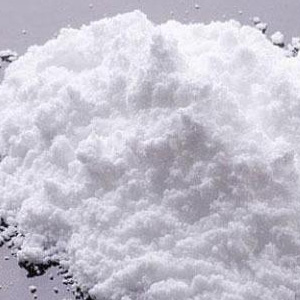
Taurine or 2-aminoethanesulfonic acid, is an organic compound that is widely distributed in animal tissues. It is a major constituent of bile and can be found in the large intestine, and accounts for up to 0.1% of total human body weight. Taurine has many fundamental biological roles, such as conjugation of bile acids, antioxidation, osmoregulation, membrane stabilization, and modulation of calcium signaling. It is essential for cardiovascular function, and development and function of skeletal muscle, the retina, and the central nervous system. Taurine has been determined to be Generally Recognized as Safe (GRAS) by lntertek Scientific and Regulatory Consultancy for use as an ingredient in enhanced water beverages (i.e., flavored water beverages with other added ingredients such as vitamins and minerals) in the United States (U.S.), consistent with Section 201 (s) of the Federal Food, Drug, and Cosmetic Act.
C2H7NO3S -- 125.15 -- [107-35-7].
Taurine or 2-aminoethanesulfonic acid contains not less than 98.5 percent and not more than 101.5 percent of C2H7NO3S, calculated on the dried basis.
Identification: Infrared Absorption 197K .
Loss on drying: Dry it at 105 for 3 hours: it loses not more than 0.3% of its weight.
Residue on ignition: not more than 0.3%.
Chloride: A 0.7-g portion shows no more chloride than corresponds to 0.50 mL of 0.020 N hydrochloric acid. Not more than 0.05% is found.
Sulfate: A 0.8-g portion shows no more sulfate than corresponds to 0.25 mL of 0.020 N sulfuric acid. Not more than 0.03% is found.
Iron: 0.003%.
Heavy metals: 0.0015%.